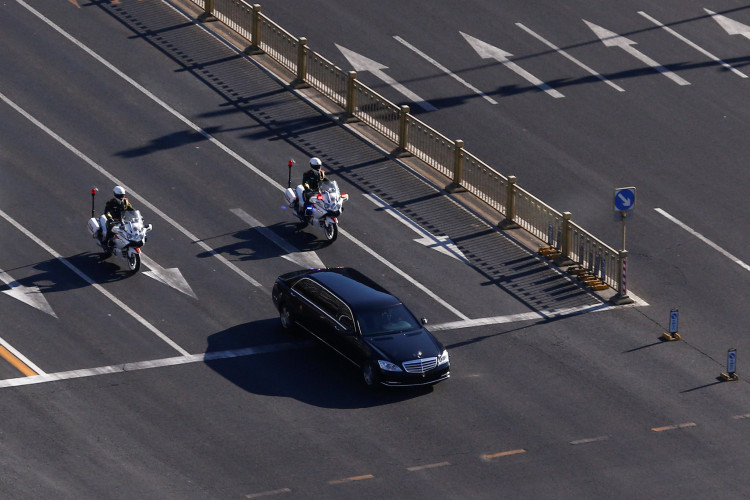Kim Jong Un's entourage made an unexpected entry to Beijing, complete with a heavily guarded motorcade procession, as the U.S. and China head towards the second round of trade talks.
The North Korean leader was invited by China's Xi Jinping, according to BBC. Security officials shut down a number of roads leading to the train station in Dandong, the bordering city between North Korea and China, while hotel guests in the area have been blocked from entering any of the building's rooms that faced the town's border.
On Monday, speculation was rife about the supposed visit and on Tuesday, Kim's green and yellow train finally made its way to Beijing. Both countries have confirmed Kim's state visit that will last for 4 days.
The visit sparked interest among spectators eager to know how the trade talks will end as Kim is one of the big names diplomatically linked to China. Director of Defense Studies at the Centre for the National Interest, Harry J. Kazianis, said, "[Mr] Kim is eager to remind the Trump administration that he does have diplomatic and economic options besides what Washington and Seoul can offer."
The New York Times further reports that Kim was accompanied by his wife, Ri Sol-ju, including a couple of North Korean senior officials. Kim Yong-chol, Kim's diplomatic relations trustee, also joined the entourage. Kim is expected to consult with China's leader before his scheduled visit comes to an end on Thursday.
Reliable outlets have suggested that Kim's state visit could open doors for the North Korean head to get a briefing on how to handle bilateral talks with Donald Trump if the supposed second summit with the U.S. president pushes through.
The United States and China previously agreed to hold off on tariffs for 3 months. It has yet to be revealed what the parties have decided upon but previous reports have suggested that there is an apparent bilateral trade tension. While there are multiple issues that the U.S. and China have to resolve, one of the points expected to be mentioned is industrial policy.
Furthermore, the U.S. has accused China of intellectual property theft, allegedly stemming from the latter's "unfair" trade policies. Experts have noted that the trade war masks the global leadership battle that two of the world's leading economies have initiated.
If the trade war talks don't result in an amicable settlement, it is expected that the two economic giants will spark tax issues. On the other hand, the temporary tariff truce raises positivity for the end result.





